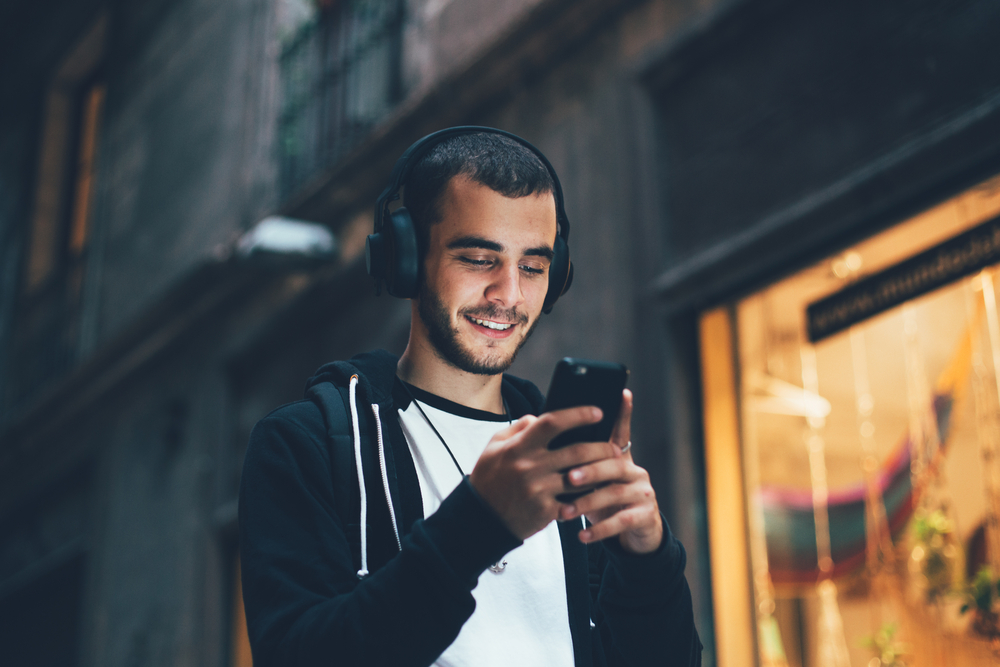
Say hello to James, an avid music enthusiast who perfectly incorporates Spotify into his work regimen, switches to Pandora during his jogs, and curates playlists for every occasion conceivable, from cardio sessions to cooking and even gaming. He’s rarely seen without his headphones, which have become an essential part of his day-to-day life, transforming every moment into a personalized audio adventure. However, while James gets solace and joy in the immersive world of music, the very thing he treasures could be quietly weakening his precious sense of hearing.
There are safe ways to enjoy music and ways that are more hazardous to your hearing health. Unfortunately, a, any us lean towards the second option.
What is the link between extended exposure to music and hearing loss?
As time pass, loud noises can lead to deterioration of your hearing abilities. Hearing loss is typically linked to getting older, but recent studies indicate that it is primarily triggered by damage from exposure to loud sounds instead of being a normal part of aging.
Younger people are more prone to noise-induced harm as their ears are still in the developmental phase. However, teenagers tend to ignore the possible hazards of excessive noise over time. So there’s an epidemic of younger individuals with hearing loss, thanks, in part, to widespread high-volume headphone usage.
Is it possible to enjoy music safely?
Listening to music at full blast without any limits is the most dangerous approach. There is a way to listen to music more safely, which usually means lowering the volume. The recommended safe volume levels are usually as follows:
- Adults should restrict their device listening time to 40 hours or less and ensure the volume stays below 80 dB.
- If you’re younger than 18, 40 hours is still fine, just be certain to keep the volume at a safe level, 75 decibels or lower.
Forty hours per week is roughly five hours and forty minutes a day. Although it might seem excessive, the time can go by surprisingly fast. In spite of this, most individuals have a well-developed awareness of time management, a skill that is generally perfected during early childhood.
The more difficult aspect involves tracking your volume level. Technologies like smartphones, computers, and TVs usually do not show volume in decibels. It’s measured on some arbitrary scale. Perhaps it’s 1-100. But maybe it’s 1-16. You might not have any clue what the max volume on your device is, or how close to the max you are.
Tips for effectively keeping track of your music volume
Several free noise monitoring apps can be downloaded for both iPhone and Android devices to address this problem. These apps supply real-time insights into ambient noise levels, enabling users to adjust their music volume accordingly.
Because of this, many audiologists suggest using one of the numerous noise level tracking apps available at no cost. These apps– extensively available for both iPhone and Android devices– will give you real-time readouts on the noises surrounding you. In this manner, you can monitor the decibel level of your music as it plays and make changes as necessary.
Comparing relative volumes: from garbage disposals to dishwasher
By way of illustration, 80 dB is roughly equivalent to the noise produced by a typical garbage disposal or dishwasher– audible, yet not overly loud. Acknowledging this standard is essential, as it represents the threshold beyond which hearing damage becomes a tangible risk.
So, being extra vigilant when surpassing this decibel threshold is essential. Consider limiting exposure to excessively loud music by indulging in select tracks at maximum volume rather than indulging in entire albums.
Recurring exposure to increased volume levels can lead to hearing problems such as tinnitus and eventual hearing loss. By being aware of when our ears venture into the danger zone, we enable ourselves to make educated decisions, with the paramount goal of promoting safer listening practices.
Set up an appointment for a hearing evaluation
To further prioritize your hearing health, consider reaching out to a hearing specialist to schedule a comprehensive hearing test. Taking practical steps like consistent screenings can pinpoint possible issues at an early stage, enabling quick actions and tailored advice to safeguard your valuable hearing.
